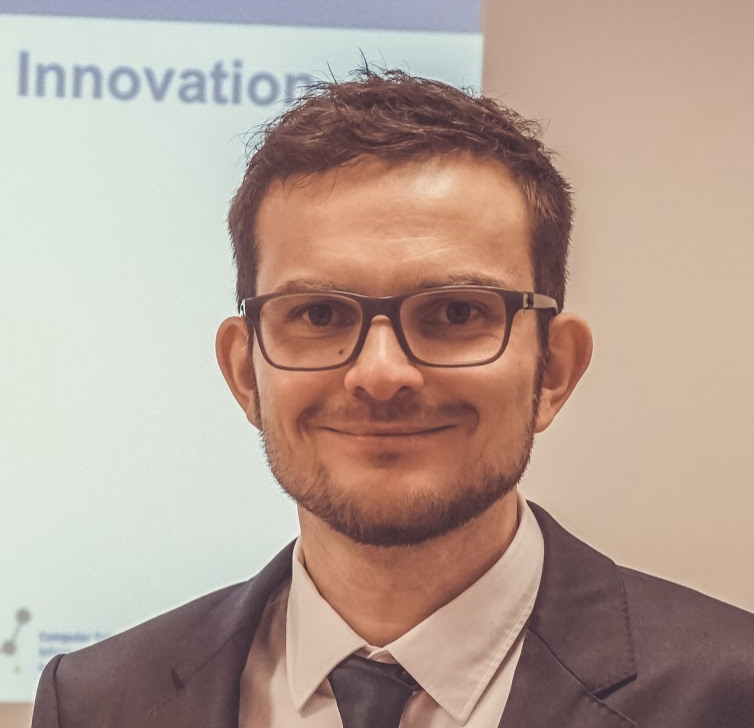Data Spaces for Sustainability and Resilience in Manufacturing
The objective of this minitrack is to explore how new information & communication systems can foster sustainability and resilience in the next generation of production systems. A main driver of this vision are digital twins (digital shadows), i.e. task- and context-dependent, purpose-driven, aggregated, multi-perspective, and persistent datasets. Digital twins provide multi-modal views with task-specific granularity provide high performance, low latency, security, and privacy at the same time. They enable radically new kinds of production and engineering applications.
Data-enriched views on processes and an increasing information capability (in real-time, complete, distributed) are the underlying principles of improving the efficiency of processes and avoiding waste over the complete life cycle of products and industrial assets. A main enabler in this regard is cross-company data spaces. They link classic “data silos” even across company boundaries. Supported by a combination of optimization, simulation, artificial intelligence and machine learning, new insights can be created. Sustainable production models utilize these data spaces to make information transparency a central part of their value proposition. In this way, they foster organizational decision making for more sustainable value creation.
Digital twins could become "sustainability twins", i.e. digital models that are networked with the real products, and provide information about performance, repair requirements, and possibilities for more efficient use. The sustainability twin continuously improves operations, adapts the product or asset to the performance actually required, and provides important insights for a more sustainable engineering of the next product generation. Process mining and corresponding data analytics are a core enabler in this regard.
Reducing resource consumption and making existing production setups more efficient are just the beginning. We also need new business models enabled by these data spaces, which focus on prosperity with resource recovery instead of conventional growth with just less resource consumption. While increasing efficiency of existing systems is undisputedly important, a true dual paradigm shift is required: Digitization and sustainability must either move into the center of the value proposition, or sustainability must be generated from a digital value creation structure itself. An example for the former are digital platforms for second-hand goods, an example for the latter "as-a-service" models, where value creation shifts from the production of a good to its usage stage.
These new production and business models achieve sustainability and resilience with value co-creation and value sharing in cross-company, open ecosystems. This requires data not just on final products, but also on semi-finished goods, raw materials, production processes, transportation, usage, and disposal or refurbishment. While building a data space enabling this visibility is technically feasible today, it is difficult to motivate all actors to share the data required – all too often, a lack of willingness to share and use data is preventing best-case scenarios. Corresponding governance structures are an essential component of sustainable business models – but there still is little knowledge how to define and utilize such governance structures fostering openness and data sovereignty.
With our minitrack, we aim to provide a forum for researchers and practitioners to discuss novel approaches in dealing with sustainability through resilient information systems and connected data spaces. Particularly, we invite submissions that discuss cross-organizational aspects of data sharing, e.g., to enable analyzing issues of sustainability and resilience across entire value chains.
Bibliography
We refer to some of recent papers by the minitrack organizers for more background about the topics that we aim to discuss in this minitrack.
Becker, F., Bibow, P., Dalibor, M., Jarke, M. et al. (2021). A conceptual model for digital shadows in industry and its application. Proceedings of the International Conference on Conceptual Modeling. Springer, 271-281. https://doi.org/hg45
Brauner, P., Brillowski, F., Dammers, H., Königs, P., Kordtomeikel, F., Petruck, H., Schaar, A. K., Schmitz, S., Steuer-Dankert, L., Mertens, A., Gries, T., Leicht-Scholten, C., Nagel, S., Nitsch, V., & Ziefle, M. (2020, July). A Research Framework for Human Aspects in the Internet of Production–An Intra-company Perspective. In International Conference on Applied Human Factors and Ergonomics (pp. 3-17). Springer, Cham. https://doi.org/hhn8
Brauner, P., Dalibor, M., Jarke, M., Kunze, I., Koren, I., Lakemeyer, G., Liebenberg, M., Michael, J., Pennekamp, J., Quix, C., Rumpe, B., van der Aalst, W., Wehrle, K., Wortmann, A., & Ziefle, M. (2022). A Computer Science Perspective on Digital Transformation in Production. ACM Transactions on Internet of Things. https://doi.org/hg56
Cappiello, C., Gal, A., Jarke, M., & Rehof, J. (2020). Data ecosystems: sovereign data ex-change among organizations (Dagstuhl Seminar 19391). Dagstuhl Reports, 9(9), 66-134. https://doi.org/hhk5
ElMaraghy, H., Monostori, L., Schuh, G., & ElMaraghy, W. (2021). Evolution and future of manufacturing systems. CIRP Annals, 70(2), 635-658. https://doi.org/gn4t4r
ElMaraghy, H. A., Youssef, A. M., Marzouk, A. M., & ElMaraghy, W. H. (2017). Energy use analysis and local benchmarking of manufacturing lines. Journal of Cleaner Production, 163, 36-48. https://doi.org/10.1016/j.jclepro.2015.12.026
Galizia, F. G., ElMaraghy, W., ElMaraghy, H., Bortolini, M., & Mora, C. (2019). The evolution of molds in manufacturing: from rigid to flexible. Procedia Manufacturing, 33, 319-326. https://doi.org/10.1016/j.promfg.2019.04.039
Liebenberg, M., & Jarke, M. (2020). Information Systems Engineering with Digital Shadows: Concept and Case Studies. In: Dustdar S., Yu E., Salinesi C., Rieu D., Pant V. (eds) Advanced Information Systems Engineering. CaiSE 2020. Lecture Notes in Computer Science, Vol. 12127. Springer, Cham. https://doi.org/hhph
Otto, B., & Jarke, M. (2019). Designing a multi-sided data platform: findings from the Inter-national Data Spaces case. Electronic Markets, 29(4), 561-580. https://doi.org/ggqvq9
Piller, F.,T., et al. (2022). Industry 4.0 and sustainability: How digital business models foster sustainability in industry. Position paper of the German Stakeholder Platform Industrie 4.0. Berlin: 2020. https://doi.org/hhk6
Piller, F., Falk, S. et al. (2020). Ten propositions on the future of digital business models for Industry 4.0 in the post-corona economy. Position paper of the German Stakeholder Platform Industrie 4.0. Berlin: 2020. https://doi.org/hhpq
Van Dyck, M., Lüttgens, D., Piller, F., & Diener, K. (2021). Positioning strategies in emerging industrial ecosystems for Industry 4.0. Proceedings of the 54th Hawaii International Conference on System Sciences, January 2021; 6153-6162. https://doi.org/10.24251/HICSS.2021.743





